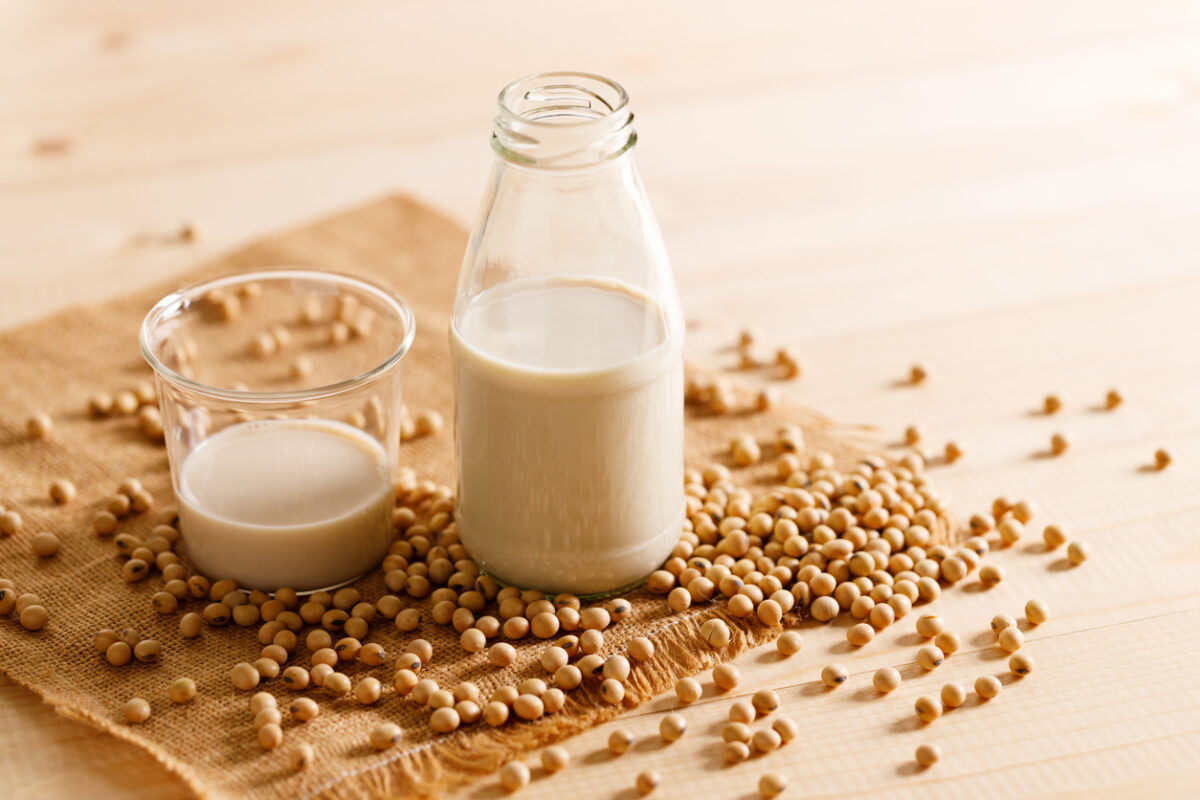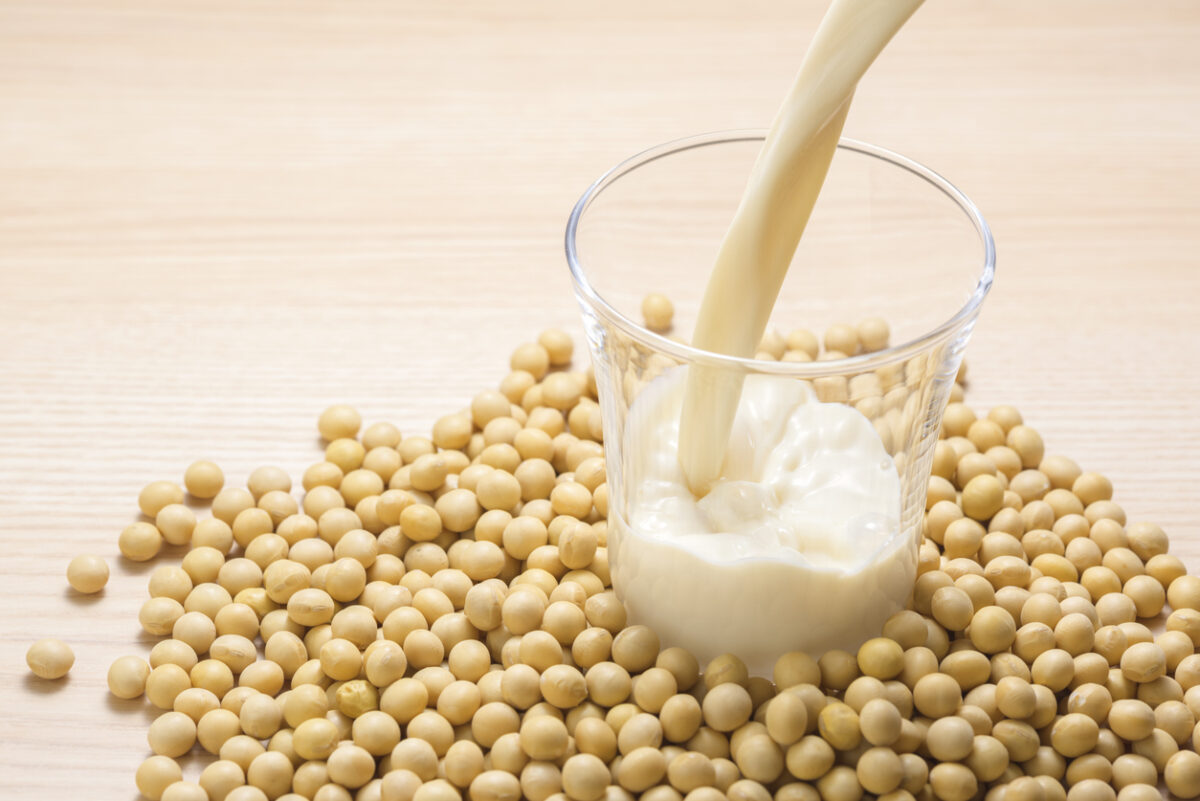Soy milk often sparks questions about its effects on estrogen. Some women worry that drinking it may raise estrogen levels and disrupt hormone balance. But the truth is more nuanced—and less alarming. Let’s break it down.
What Are Soy Isoflavones and How Do They Work?
Plant-Based Estrogen Compounds
Soy milk contains compounds called isoflavones, which are classified as phytoestrogens—plant-based substances that have a structure similar to human estrogen. The main types in soy are genistein and daidzein.
A Fraction of the Effect
Despite their estrogen-like structure, these isoflavones don’t behave like human estrogen. In fact, their effects are only 1/1,000 to 1/10,000 as strong. That means they may bind to estrogen receptors in the body, but they don’t activate them nearly as powerfully.
The Estrogen-Like Effects of Isoflavones: Weaker Than You Think
Modulators, Not Boosters
Instead of increasing estrogen, isoflavones tend to regulate its activity. When estrogen levels are too high, they can block stronger natural estrogens from binding to receptors. When levels are low, they offer mild stimulation. This balancing act may help reduce menopausal symptoms, not worsen them.
No Risk of Overload
Studies show that moderate soy consumption does not raise estrogen to harmful levels. The American Cancer Societyeven states that soy foods are safe for breast cancer survivors and may offer protective effects.
Read more from the ACS
Why Most Isoflavones Pass Through Your Body Undigested
Sugar Chains Get in the Way
Raw soy isoflavones come attached to sugar molecules. These larger molecules are difficult for the human digestive system to break down. Unless enzymes or gut bacteria manage to strip off the sugar, your body can’t absorb the isoflavones effectively. Most are simply excreted.
Gut Flora Matters
People with specific gut bacteria can convert daidzein into equol, a more bioavailable form that has stronger hormonal activity. However, only about 30–50% of people in Western countries produce equol. In contrast, a higher percentage of Japanese people can, thanks to their traditional diets.
The Japanese Diet and Fermented Soy: A Unique Advantage
Fermented Foods Make a Difference
Fermentation changes everything. Foods like miso, natto, and tempeh already contain aglycone isoflavones—a form that no longer has sugar attached. This makes them easier to absorb and more bioactive in the body.
A Cultural Insight
Japanese cuisine includes many of these fermented soy products. Over time, this has shaped a gut environment better suited to processing soy. This may explain why Japanese women tend to have milder menopausal symptoms and stronger bones than Western women.
See this study on traditional diets and bone health
Beyond Isoflavones: Other Health Benefits of Soy Milk
While soy milk may not be the most efficient source for utilizing isoflavones—due to poor absorption in many people—it still offers a range of nutritional benefits. In fact, drinking soy milk allows you to enjoy many of the same health-supporting nutrients found in traditional Japanese soy-based diets, which are known for promoting longevity and wellness.
Protein and Nutrients
Soy milk is rich in plant-based protein, potassium, and calcium (especially when fortified). It also contains vitamin B12, which is essential for nerve health and energy metabolism.
Heart and Bone Support
Regular soy intake may help lower LDL (bad) cholesterol, which supports heart health. Some studies suggest it also aids bone density maintenance, especially when paired with calcium and vitamin D.
A Good Choice for Most Women
Unless you have a soy allergy, moderate soy milk consumption—about one to two servings a day—is not only safe but potentially beneficial. It supports overall health without flooding the body with estrogen.
Final Thoughts
Soy milk does not significantly increase estrogen levels in women. Its isoflavones act more like gentle modulators than hormone boosters. Most of these compounds are not even absorbed unless properly digested. Fermented soy products like miso provide a more effective way to access soy’s benefits. And even beyond hormones, soy milk offers a range of nutrients that support aging gracefully.
If you’re looking for a natural way to support your hormone balance, consider combining soy milk with fermented soy supplements, like those inspired by Japanese diets. It’s one of the smarter, safer ways to age with strength and vitality.
Natural menopause supplement from Japan: Juveriente® Effisoy®
Safe and moderate healing backed by a lot of happy reviews
Juveriente®’s Effisoy, launched in 2016, based on fermented soy bean germ extract has been loved as a natural menopause relief since its launching in 2016.
Its primary function is to boost the weakened synthesis of a hormone precursor, DHEA. It helps the precursor, DHEA, and then help men and women respectively in line with their natural systems. The hormone boost doesn’t provide the only relief from menopausal symptoms including insomnia by regulating the heathy hormone balance. It will help you balance hormones during premenopause, perimenopause, or postmenopause.
Here are some of the real product reviews in our Amazon shop.
“Restful sleep finally!!”, “I Am Now Free of Hot Flashes!!”, “Lifesaver”












































